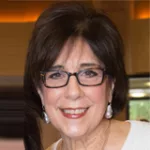Should You Move After Retirement?

How to make the right choice for your best opportunities
My aunt and uncle moved right after he retired and I was sad about it. I was young; I loved spending Thanksgiving at their home with my cousins and remember asking them why they were moving.
“It is because with retirement comes a feeling of freedom and time for adventure,” my uncle told me.
After researching and traveling to different places, they settled in a retirement community in Arizona.
As a Retirement Transition Coach, I now understand why they moved. My job is to help clients plan for their new lifestyle; we often talk about how to find their next living space and community, whether it be a new home in the same city or a new home far away.
Is Relocating After Retirement Right for You?
If you’re considering moving upon or after your retirement, consider what you want to “pack up” and leave behind. I’m not talking about “stuff” — do you want to leave behind yardwork, a large home, traffic, noisy and/or nosy neighbors, a longer than desirable drive to places you frequent?
And what’s important to you if you move?
Factors to Help You Make the Decision to Move or to Stay Put
Bev Bachel, a freelance writer and author, suggests using the AARP Livability Index tool. This compares neighborhoods across the country based on different factors, such as:
1. Housing
Do housing costs, whether buying or leasing, align with your budget? Do the choices and accessibility meet your needs?
2. Neighborhood
Does the neighborhood offer easy access to jobs, grocery stores, libraries, parks, shopping, entertainment venues, and more?
3. Transportation
How safely and quickly will it be to get from Point A to Point B? What public transportation options are available?
4. Environment/Quality of Life
What is the climate? How clean is the air and water? Are policies in place to protect the environment?
5. Health
How accessible is affordable healthcare and healthcare facilities, healthy food, jobs, health clubs, and continuing education?
6. Social Engagement
Does the community offer social opportunities and make it easy to interact with others, both in-person and online?
7. Opportunity
To what degree does the community embrace diversity and offer individuals, regardless of age and background, continuing learning and opportunities to earn a living wage?
These are just a few factors to consider. Certainly, there are others. How close will you be to an airport? To children and grandchildren? Is the community just for retirees or is it multi-generational? Is it safe? What restaurants are close by and what are their ratings? The list goes on and on.
After a recent visit with my uncle, we talked about how upset I was when he and my aunt (who has since passed away) moved after they retired. He said it was not an easy decision. But he told me it was the best time of their lives — had they stayed in Dallas, they would not have been exposed to the opportunities and friends that satisfied their longing for new experiences and adventures!






